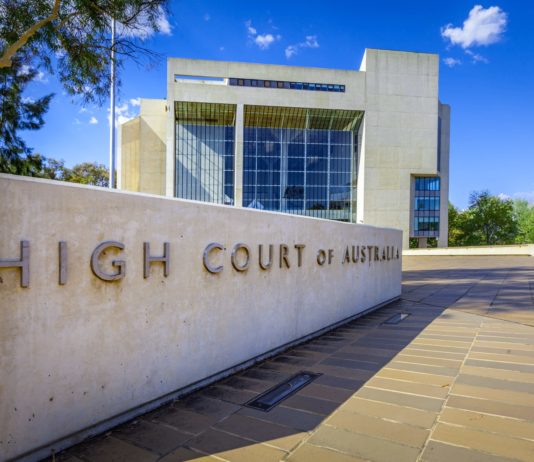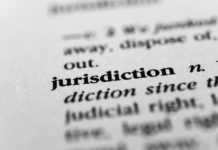FCA has jurisdiction for damages in tort? Multiple parties in migration litigation?
High Court: Under s 44(2A) of Judiciary Act 1903, HCA can remit a matter involving the Commonwealth to FCA. But under s 476B of Migration Act 1958, HCA can only remit a matter that relates to a migration decision to FCA if FCA has jurisdiction under ss 476A(1)(b) or (c). Can it be said that the reach of ss 476B and 476A "is confined to applications for public law remedies in the nature of judicial review of migration decisions and so does not deprive the [FCA] of original jurisdiction in relation to a claim in tort against the Commonwealth for false imprisonment the result of the Commonwealth allegedly taking too long in making a migration decision to grant or refuse a visa"? Did s 486B preclude the plaintiff from bringing the claim in tort as a class action or representative proceeding?
Does materiality have to be “formally placed in issue” before that onus arises?
Federal Court: In SZMTA, the High Court had held that materiality "is a matter of fact on which the appellant bears the onus of proof". However, can it be said that "materiality has to be formally placed in issue before that onus arises"?
Unwilling to participate: should FCA order production of documents?
Federal Court: "In light of the appellant’s self-represented status on his appeal, it remains to consider whether the Court should exercise its discretion to order the Minister to produce the country information so as to enable the merits of the appellant’s argument to be determined by reference to it ... Despite the urgings of the Court [the Appellant] has expressed an unwillingness to participate in the hearing of the appeal in a meaningful way". Should the FCA exercise its discretion in favour of the Appellant?
Lack of recusal request waives apprehended bias claim?
Federal Court: Was there an apprehension of bias by reason of same AAT member hearing both nomination refusal review and corresponding 457 visa refusal review? Did Tribunal's finding that Appellant's evidence was not “persuasive or compelling” of itself amount to a finding that the Appellant was not a credible witness? Did Appellant, who was represented, waive apprehension of bias claim by not asking for the member to recuse herself? During appeal to FCA, it arose that the further nomination application had been refused. Did that mean that apprehension of bias, if established, was not material? Did Isbester apply to this case? Was refusal to adjourn review legally unreasonable?
“court must not publish … person’s name”
Federal Court: IAA affirmed decision to refuse Appellant a protection visa. Appellant then unsuccessfully applied to Federal Circuit Court (FCCA) for judicial review. FCCA's decision did not publish Appellant's name, in compliance with s 91X of Migration Act 1958 (Cth), which prohibits courts from publishing names of protection visa applicants. Appellant eventually appealed to Federal Court (FCA), arguing that: FCCA had constructively breached s 91X by publishing information sufficient to identify him; that breach was an appealable or jurisdictional error "because it frustrates the scheme by rendering the IAA decision nugatory..., in that it raises a new claim for protection". Should FCA issue a declaration that FCCA breached s 91X?
Template submissions: fraud “on” the IAA?
Federal Court (Full Court): In SZFDE, HCA had held that a representative's conduct only invalidates a review under Pt 7 of the Migration Act if conduct is fraudulent and subverts the review. Here: 2 visa refusals were automatically referred to the IAA for review under Pt 7AA; the same representative purported to make submissions to the IAA on behalf of both visa applicants (the respondents); however, without the respondents' knowledge, those were template submissions copied from other cases, which said little about the respondents' cases, made arguments that related to other applicants and made generic arguments. The FCAFC was divided on whether SZFDE applied to Pt 7AA reviews.
Apprehension of subconscious bias?
High Court: Unbeknown to the Appellant, Secretary gave IAA additional material in purported compliance with s 473CB(1)(c). However, the additional material was objectively both irrelevant to IAA's review and prejudicial to Appellant. IAA then wrote to Appellant: DHA "has provided us with all documents they consider relevant to your case". It eventually affirmed delegate's protection visa refusal, without requesting new information or interviewing Appellant. IAA's reasons: stated that IAA "had regard to the material referred by the Secretary"; did not refer to additional material. Did the giving of additional material result in: a material "failure of a precondition to the exercise of the jurisdiction of the [IAA] to conduct a review"; a reasonable apprehension of bias on the part of IAA?
Did AAT have jurisdiction due to fresh nomination?
Federal Court: Appellant was refused a subclass 457 visa and applied to the AAT for merits review, despite not satisfying the old s 338(2)(d), which required, at the time of that merits review application, the existence of an approved nomination or a pending merits review application of a refused nomination. Was "the Tribunal’s jurisdiction ... capable of 'correction' through the lodgement of a fresh nomination from the appellant’s new employer"? If so, was it unreasonable for the AAT to refuse to adjourn the proceedings so that the new nomination could be approved in the meantime?
Choice not to proselytise meant no fear of harm?
Federal Court: In Appellant S395, HCA had held that Tribunal made an error by "focusing on an assumption about how the risk of persecution might be avoided" if S395 changed behaviour by not living openly as homosexual. Appellant in the present case stopped believing in Islam and became agnostic, after which he was discreet about his agnostic views and applied for protection. The principal reason for being discreet was that he saw no reason to propagate his views. Another reason was that his mother had "asked him to be careful about speaking out about his ... views". Was it open to the IAA to find that, given Appellant's choice not to proselytise his agnosticism, he did not have a well-founded fear of persecution?
Direction 69: mandatory considerations for GTE?
Federal Court: FCA had held that: the factors in Direction 53 for assessing whether a person is a Genuine Temporary Entrant (GTE) were not mandatory considerations; decision makers were only required to consider whether to weigh up those factors; evidence going to a particular factor might be "shown to be so significant or compelling that it might be inferred that the Tribunal's failure to refer to that evidence manifested a failure to [consider whether to weigh up that factor]". Do the same principles apply to Direction 69? We explain how practitioners can use this decision to maximise the prospects of satisfying the GTE criterion. Further, FCA answered whether it was likely that Appellants' RMA had told them "they did not need a lawyer" at FCCA.



















